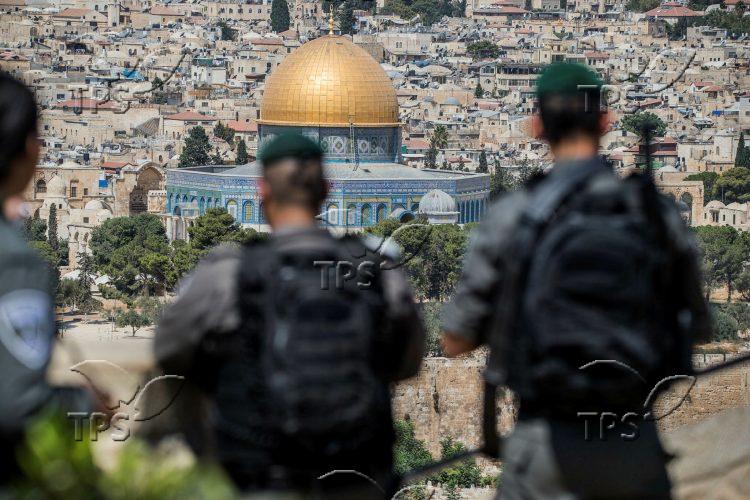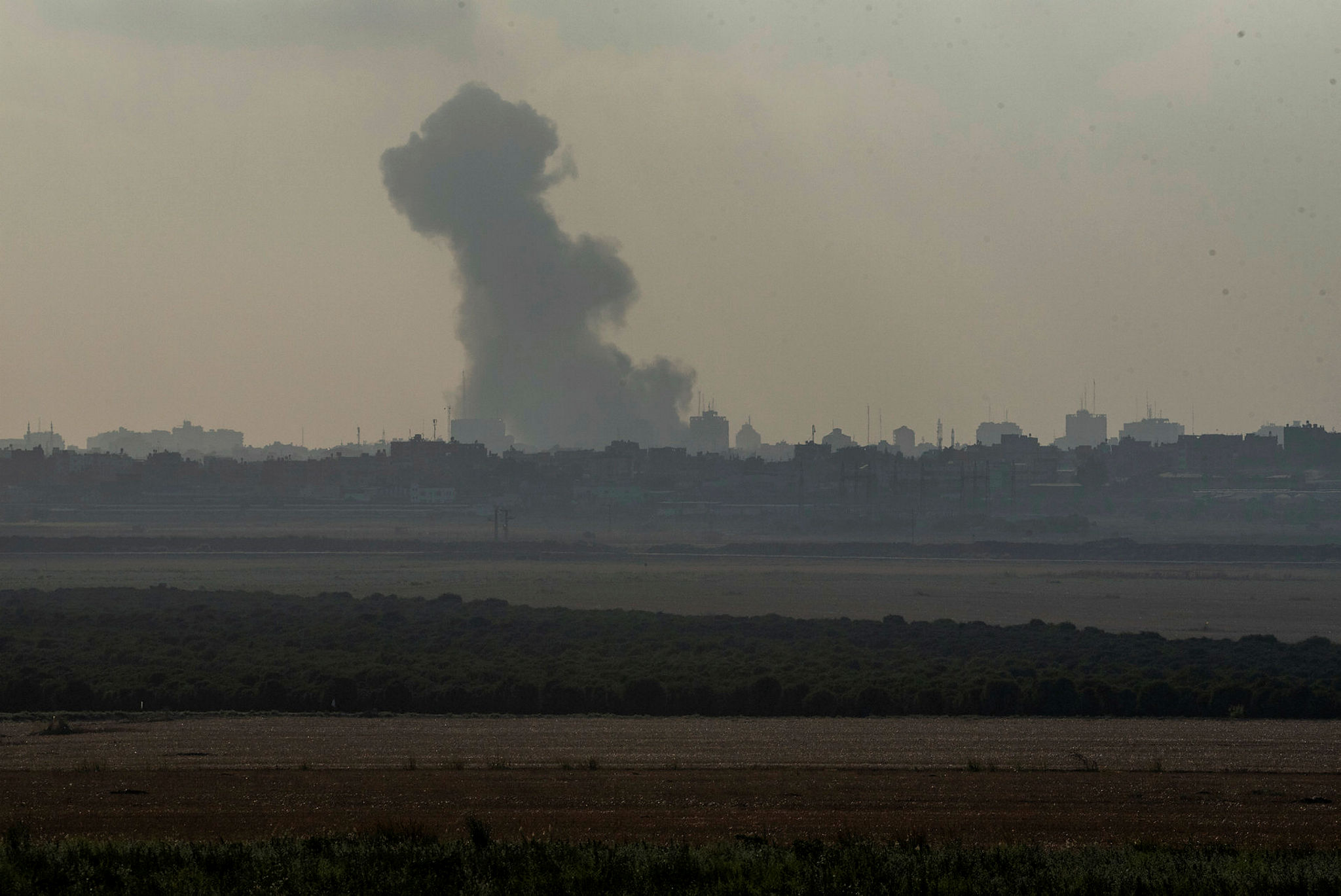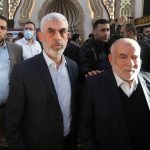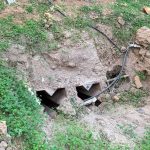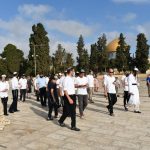On Eve of Ramadan, Analysts Warn Hamas Will Spark Temple Mount Violence
Jerusalem, 10 March, 2024 (TPS) -- Analysts warned on Sunday, the eve of Ramadan, that Hamas will spark Temple Mount violence during the Muslim holy month.
“Hamas wants the ‘interior’ forces to join its struggle,” Brig. Gen. (Res.) Amir Avivi told the Tazpit Press Service, referring to the Israeli-Arab community.
“When it launched the attack on October 7th, it believed that its success would immediately drag the Israeli Arabs, and the Arab residents of Judea and Samaria in the war,” said Avivi, founder and chairman of Israel Defense and Security Forum. “No one joined them, Hamas was left alone. Now, Hamas attempts to motivate them to join them, pressing on the Al-Aqsa issue.”
Israeli security forces are beefing up their presence in Jerusalem, but the government is not imposing new restrictions on access to the Temple Mount. Instead, Prime Minister Benjamin Netanyahu has instructed police to allow a similar number of worshippers to the holy site as in previous years.
“The chance of terrorist attacks is high, so the main question is – how to preserve the possible peace. The State of Israel should act with a carrot and stick method: invest significantly in security reinforcement to prevent riots and on the other hand, for a balance let freedom of worship on the Temple Mount, to create a controlled reality,” Avivi said.
Hopes for a ceasefire ahead of Ramadan were dashed when talks in Cairo collapsed on Friday.
“At this stage, Hamas is fortifying its position as if it is not interested in a deal, and it strives to ignite the region during Ramadan at the expense of the Palestinian population of the Gaza Strip,” the Mossad said in a statement.
In a video statement released on the terror group’s Telegram channel on Friday, Hamas spokesperson Abu Obeida called Ramadan “the month of victory, the month of jihad” and called for Palestinians and Israel’s Arab citizens to march en masse to Jerusalem to “defend” the Al-Aqsa Mosque.
Palestinian terror attacks traditionally surge ahead of and during Ramadan.
Arnon Segal, a veteran Israeli journalist and Temple Mount researcher was concerned by how the decision to not impose some restrictions would be perceived by Hamas.
“We give the neighborhood bully what he demands in exchange for peace, but why would the bully think that peace pays off in this case?” Arnon Segal, the Temple Mount researcher told TPS. “The state of Israel has allowed the Temple Mount to become a small Palestinian state, so now the enemies of Israel are trying to expand the situation and enlarge it.”
Segal, the author of the book titled “Habayit” which can be translated as either the Temple or The Home, is a frequent visitor to holy site.
“The day before the October 7 massacre, a sign was hung in the Al-Aqsa compound, saying, ‘The road to Jerusalem is lined with the blood of martyrs,'” he recalled. “Freedom of worship is important, but this kind of violent public shouldn’t be allowed to incite at this site.”
He told TPS that if the government chooses not to restrict Muslim worshippers from the Temple Mount, then Jewish visitors should not be restricted either.
“Democratic principles must allow everyone to enter holy sites, without discrimination,” Segal stressed. ”Certainly, it is important to limit the violence at the holy sites, but in the long-term it makes sense allowing entry for everyone equally, Jews and Muslims alike.”
Meanwhile, the Israeli Police said on Sunday that they arrested 20 residents of eastern Jerusalem over the last two weeks accused of inciting and supporting terror.
“From past experience, there are those who want to use the month of Ramadan to spread rumors and ‘fake news,’ while publishing a distorted version of reality on social networks,” the police said in a statement. “Among them are terrorist organizations and terrorist elements, who take advantage of the holiday to incite and spread false information regarding the reality in Jerusalem, the Old City and in particular the Temple Mount.”
The Temple Mount, where the First and Second Jewish Temples were built, is the overall holiest site in Judaism. The Western Wall is the only remnant of a retaining wall encircling the Temple Mount built by Herod the Great in the first century and is the holiest site where Jews can freely pray.
Rabbis are increasingly divided over Jews ascending to the Temple Mount. For centuries, the widespread rabbinic consensus was that the laws of ritual purity still apply to the site. But in recent years, a growing number of rabbis have argued that ritual purity laws don’t apply to all sections of the Temple Mount and encourage visits to permitted areas to maintain Jewish connections to the Mount.
The delicate status quo governing the Temple Mount goes back to 1967, when Israel liberated the Old City of Jerusalem from Jordan during the Six Day War. Fearing a religious war, then-defense minister Moshe Dayan agreed to let the Islamic Waqf, a Muslim trusteeship, continue managing the holy site’s day-to-day affairs, while Israel would maintain overall sovereignty and be responsible for security. The Waqf is overseen by Jordan.
According to the status quo, Jews and non-Muslims would be allowed to visit the Temple Mount, but not pray there.
According to figures released by Beyadenu, 50,098 Jews visited the Temple Mount in 2023, a dip from the record-breaking 51,483 Jewish visits in 2022.

